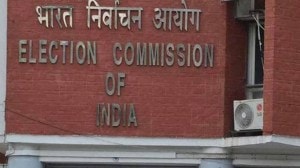HC passes strictures against use of autonomy by CoEP
The petition had challenged the inaction on the part of the state government to take note of the complaints with regard to teacher.
Passing strictures against the use of autonomy by the College of Engineering Pune (CoEP),the Bombay High Court has directed that the institute is bound to abide by the instructions,rules and regulations and relevant statutes framed by the state government from time to time.
It is not as if without any reference to the Government Resolution (awarding autonomy) and decision taken in the interest of higher education that the autonomy can be enjoyed by the institute, the court has said,while disposing of a writ petition filed by Abhiyantriki Mahavidyalaya Rajpatrit Adhyapak/ Adhikari Sangh,a forum of gazetted teachers/officers in engineering colleges.
The petition had challenged the inaction on the part of the state government to take note of the complaints with regard to teacher appointments made from 2007 to 2011 in the CoEP.
The two-member bench of Justices S C Dharmadhikari and A P Bhangale,in its judgment delivered on November 27,has,however,refused to express any opinion on the merits of the contentions made by the petitioners,asking the state government to take requisite steps and measures as expeditiously as possible and in accordance with law within three months from the receipt of the order.
To our mind,it is therefore plain and clear that the government retains such control as is requisite and necessary as to ensure quality education even after the autonomy is granted to the College of Engineering,Pune, said the court.
Refusing to accept the state governments argument that since it granted autonomy it could take note of the complaints but it was for the CoEP to proceed against the appointees concerned,the court held that the government had enough powers that it could exercise to ensure discipline and quality of education even after the autonomy was granted.
Once the autonomy is controlled and is under supervision of the government,including making available finance and funds from public exchequer,then the government may take requisite steps and so as to proceed against not only the appointee but against the college as well, the court said in its final ruling.
The matter pertaining to said appointments is more than three years old and a PIL had also been filed in this regard in 2011. While hearing the PIL,the High Court had asked the then secretary of higher and technical education department to take necessary action in eight weeks. With no action taken in the stipulated time,the aggrieved parties had filed a contempt case. Appearing before the court in the case,the government had then produced an order issued to the Directorate of Technical Education (DTE) asking to consider the teacher appointments concerned as temporary and produce a detailed report in the matter. Not satisfied with the progress in the issue,the aggrieved parties then moved a writ petition in the matter,asking the state government to take requisite steps within three months.
The CoEP has made more than 30 teacher appointments violating the rules and regulations laid down by the government. Also,there were certain individuals appointed as associate professors but they are drawing a salary of the post of professor,causing a complete misuse of funds. In a few cases,public funds were being spent in making payment or salary even if the institute claims to be an autonomous one, said Vinayak Lahade,vice-president of the state-level forum of gazetted officers.
Lahade said even the affidavit submitted by the government in the Bombay High Court during hearing of the writ petition filed by the forum of gazetted teachers/officers against the CoEP corroborated the allegations.
The teacher appointments in question are proving detrimental to the interest of CoEP teachers appointed through the Maharashtra Public Service Commission (MPSC) in the past. They have been receiving better career benefits than that of teachers appointed through MPSC despite being less competent. This is injustice and spreading a feeling of discrimination among a section of staffers, he said.
No merit in complaints,ready for any inquiry,says CoEP director
PRASAD JOSHI
PUNE,DECEMBER 9
Stressing that there is no merit in the complaints related to teacher appointments,CoEP Director Anil Sahasrabudhe said the institute would clarify its stand on the issue if the state government demanded so.
He also said the state government could not make proper presentation before the court on the issue,leading to an unfavourable judgment by the court.
We have done whatever was mandated to us as per autonomy. The board of governance of CoEP consists of individuals known for utmost integrity and accountability. The teacher appointments in question are just and most appropriate. Care was taken to ensure most competent and best people get recruited. Let the government carry out any inquiry so that facts can come out, he said.
Touching upon different autonomy-related issues,Sahasrabudhe said holistic measures were needed at government level to evolve the philosophy of autonomous institutes.
Granting autonomy to educational institutes should not remain a half-hearted measure. The government should first understand fully the rationale behind awarding an autonomy. Best practices being carried out in IITs and IISc should be kept uppermost in mind while giving academic and administrative freedom the institutes. The government has to enhance and improve the existing frame of autonomy for institutes for better results. Any inordinate delay to this effect could be detrimental to such institutes only, he said.
Referring to the issue of faculty appointments,Sahasrabudhe said the government had in October 2012 asked for teachers appointments through MPSC alone,but the commission had not issued such advertisement for more than a year now.
We are now forced to carry out teachers appointments on contract basis. No promising and competent candidate would like to opt for contractual employment. Since faculty recruitment plays a vital role in the growth of autonomous institutes,we are presently helpless with the laid down government rules, he said.
Sahasrabudhe said CoEPs ongoing efforts to get deemed to be status would resolve different issues faced by the college.







